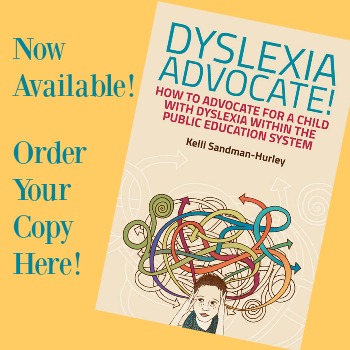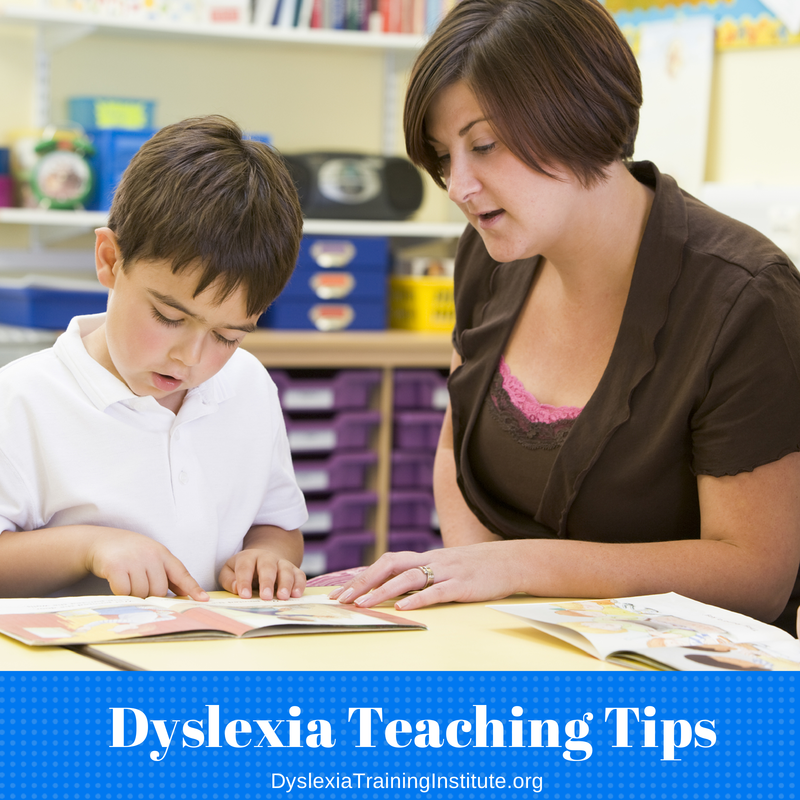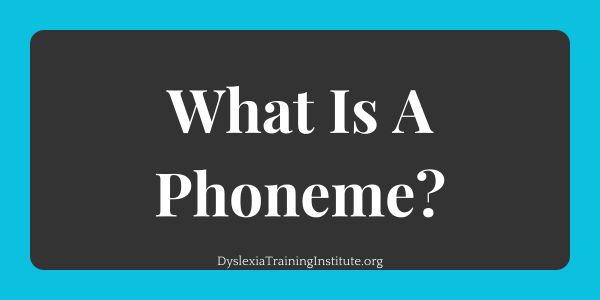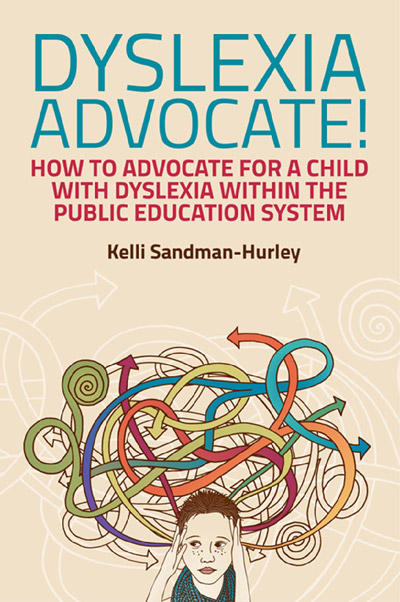 Download the PDF version of this article here.
Download the PDF version of this article here.
Do you want to know what keeps me up at night? No? Well, I am going to tell you anyway. It’s not my bills, my aches and pains, a good guest host on Saturday Night Live or even the excitement of an upcoming vacation. What keeps me up at night are the parents that come to my office, who tell me their story, trying their best to hold back tears, and who leave my office with the reality of their situation laid out before them and never come back. They tell me about their frustrations with the school, the lack of a diagnosis, the burgeoning emotional distress of their struggling child, and then I hear the words that foreshadow their fate: “Ok. I am going to take this information to our next meeting with the school. Thank you so much for your help.” I’m often left wondering what happened at that school meeting and which ‘untruths’ they were told, which myths were perpetuated and how many people from the school were sitting on the other side of the table. I imagine that the school talked them out of everything I had spent quite a bit of time educating them about. Then I think, how sad for their child.
Do you what is even sadder? I have to caution parents that one of the most detrimental things they can do is listen to the school when it comes to a child with dyslexia. Below is the most common ‘advice’ parents are given by well-meaning school personnel and what they reveal about what the schools know about dyslexia and dyslexia and the law.
“Your child is receiving intervention via RTI (Respond to Intervention) so we won’t test him until third grade anyway.”
Well you know what I would say, right? But we’ll save the curse words for another time. The problem here is threefold.
First, early detection is the key. From now on, when you hear this from anyone connected with the school, I want you to ask them the following questions: What exactly are we waiting for? How is waiting going to be helpful if RTI does not work?
Secondly, this response reveals that the school personnel does not understand or know the education code. Your response should be: Can you please show me the written school policy and the IDEA law that supports your decision to wait until third grade? Are you aware that IDEA does not support your decision to deny testing because you want to try RTI?
Third, we know that children with dyslexia need a program that is explicit, structured, sequential and multisensory intervention. So, you need to ask: Can you please describe the RTI intervention you are using and describe to me the teacher’s training in that intervention? Can you please show the research that supports the use of the particular program with a student with dyslexia?
Remember: question, question, question. Question everything and question it often, but question it in writing and request it in writing. This is the classic wait to fail model, and I have seen many parents ‘fall’ for it simply because they desperately want to trust the school.
Is this what they hear and why they don’t come back?
‘Well, we really don’t work with dyslexia, so testing won’t help anyway.’
I am quite sure that I will spontaneously combust if I hear one more time that “my state/district/school does not acknowledge dyslexia.” If you live in the United States on the planet Earth, your state/district/school does work with kids with dyslexia, and they do acknowledge dyslexia. If you hear anything that states otherwise, do not accept it. Instead present them with the IDEA definition of Specific Learning Disability (SLD) that includes the qualifying condition of dyslexia. A state cannot supersede IDEA and eliminate dyslexia from the definition of SLD. They just can’t. Again, ask them this, “Would you please send me the written policy that supports your stance that you do not use the term dyslexia or that the state/district/school does not acknowledge dyslexia.” It is no longer the ‘d’ word; just use it and use it often. Dyslexia, dyslexia, dyslexia…there I said it, now your turn.
‘I am not sure what you are concerned about Ms. Smith; Joe is doing great in his classes.’
Is he really though? Have you asked him how long it takes to study for a spelling test or read a chapter in his social studies book? Can he spell those words two weeks later? How many times did he write that paragraph in his journal? Don’t you think his oral vocabulary far exceeds what he writes for you? When you are reporting a fluency score to me, is this a hot read or a cold read? Is this a grade level passage?
Yes, most kids are average, as are most of us, but if you know your kid is not average yet he or she is performing in the average range, you do not have to accept it. Also, what if it is taking the student 4 hours every night to stay average…is that a problem? I think so. This is the great marginalization of these kids with dyslexia. IDEA does insinuate that schools have to take into account (again, take into account, not maximize) the student’s potential when creating plans for those children – the basic floor of opportunity standard is being slowly chipped away, and that’s a good thing.
I lay awake at night and wonder which bit of rubbish the parent succumbed to in the belief that the school personnel were the experts. What ended up happening to the child that provoked a desperate email and office visit? Yes, you just might upset the school and as one of my clients recently said ‘get the stink eye’ for making waves, but does that really outweigh the lifelong benefit of getting the correct services?
Let’s face it; there is a laziness factor here. I am not privy to any super-secret information and then have top-secret clearance to share it with you. Sure, I am good at condensing it and making it accessible (and hopefully putting a smile on your face every now and then with a quip), but any school personnel could google dyslexia and learn quite a bit in one to two hours.






LOVE this article! I have thought the same for q while now for sure. But with a team meeting coming up Tuesday, this is the reassurance and encouragement I needed to push my requests for my son. THANK YOU!
So, do you think a child with dyslexia would qualify for speech therapy (possibly incorporating the lindamood bell lips program, or reading programs like seeing stars?).
I asked for school to test my son for dyslexia but was told they couldn’t until he was 7 years old(&they couldn’t go by the recommendations of out of school diagnostic testing which diagnosed him with severe dyslexia &cost $500.btw). But he didn’t turn 7 till the end of the year so now he’s being retained 1 year and testing won’t be done till beginning of fall. This is beyond sad, my son was a happy go lucky child. Now his self esteem has been severely affected. My plan is to take him out of the school and put him in a private school specializing in learning disabilities, but it will cost $20,000 plus a year. So I’m sad for my son and pissed because of the stress involved in working 7 days a week to save that amount of money(not to mention he sees less of his mom). Why can’t our country educate ALL our children. Why can’t my dyslexic son be provided with the specialized education that he needs. Where are the teachers specializing in dyslexia?
That is just what makes me so upset with the school system. If I found time to learn and read whats your excuse? Your right, this isn’t top secret information. This is something that should be top priority with Special Ed teachers. I know more than my daughters does. Love the post!! Love it
Love, Love, Love this article! This is exactly what happened to my daughter and I had to fight for the right for her to be tested. I studied to show myself approved on all these areas. I cried when finally she was diagnosed with dyslexia. Not out of pain, but out of relief that now finally we can start getting some help and answers. A lot of public schools and private schools are ignorant on this topic. Some are not. I finally found a school that helped my daughter. But, then not all teachers want to help either. Our family decided to home school and which has opened the heavens above my daughters head for learning. I gave up being a private school teacher to help my oldest daughter achieve her dreams. The future are our children. My daughter is smart, funny, creative, beautiful and more. She just learns differently then some, and thats okay. Its a day by day journey that is rewarding when given the freedom to express your learning style and not be told, you have to learn this way or else. Thank you for your article. Do not stop writing and posting. Do not grow weary in doing good. 😉 The Jacques Family.
So far in my sons dyslexia journey, we have been very fortunate with our current school. However, now he is in middle school and is struggling very badly. They have an SLD director but my son says he is of no help. We are seriously considering home school or on line school. Any recommendations in that area would be greatly appreciated.
Elizabeth.
Hi Elizabeth. We have been homeschooling our kids with dyslexia for 20 years! It has been awesome. Not always easy, mind you, but opens so many doors of opportunity for our brilliant children to learn freely without shame. I created a web site to share our knowledge: http://www.homeschoolingwithdyslexia.com
PS: I got my OG training from DTI! They are amazing.
There are two kinds of dyslexic kids — kids who succeed in school and kids who don’t. That is to say there are two kinds of parents — parents who get the facts and fight for their kid and parents who don’t.
Nelson Lauver, The American Storyteller
I love this!!
The problem is, no matter how hard you push and how much you know, many school districts won’t budge. I went to IEP meetings prepared, with advocates and even went to mediation, but ultimately, my husband and I had to pay out of pocket for private tutoring (an Orton-Gillingham based program) in order to help our daughter be successful in school. It is sad.
I am currently undergoing all of the IEP meetings for both of my children, my son who is in 1st grade and my daughter who is in kindergarten. It is very obvious they have dyslexia to me, now, as I have dyslexia, I guess it took two of them struggling the exact same way for me to understand what was going on. In the meeting I was just in for my son they clearly stated that in North Carolina dyslexia is not identified as a learning disability and thus there would have to be a discrepancy before we could get an IEP. We are waiting, for them to find a discrepancy. We are waiting and time is passing and my children may be falling even more behind. I too am looking at paying thousands of dollars for tutoring because it has been made clear that even if they do get an IEP the method of teaching is not what works best in their situation.
My district in Texas does the exact same thing, despite Texas have a fabulous dyslexia law. What I have found is that you have to be one of “those” parents. This article gives you great ideas of questions to ask them. You can also ask for a 504 dyslexia plan. You can also use the words “due process” frequently and that REALLY tends to get their attention, because they know that you know you have recourse if they continue to be bone headed.
Tonya I hope you get this message,it’s the same here in Wisconsin, What you have to do is get a hold of a doctor and have him write that your child has developmental delay ,which is dyslexia,and your set, then you get a hold of the disability program at your county court house,and they assign 1 or 2 people to be at your dip metting and the school,then the school goes by the laws,, one on one , a team of ten or more teachers helping
My daughter and I just finished reading an email from the head of our district special education program. We then saw this post. I cannot tell you how correct you are. I fought for three years to have my daughter tested and was repeatedly told she was fine and did not warrant the testing. The fourth year I had her tested at the University of Iowa and of course she is dyslexic. We are being fed vague answers and empty promises by the school. I thought when I had those papers in my hand the fight would be over. I am now planning to get trained in the Orton-Gillingham techniques because it has become abundantly clear to me that this is something we are better to face without the “help” of our school. I would agree, it is really really sad.
And this is why all three of my dyslexic children are in private schools! Two were successful in a private school that served a wide variety of learners AND had a Reading Center staffed by CALTS! The third has very severe dyslexia and attends a school that serves only dyslexic children. The public schools here do as little as possible for dyslexic children.
And my town is blessed with a chiropractor who claims that she can CURE dyslexia in as little as a week with spinal manipulation!! Did your head just explode? I still can’t figure out the proper response.
Like Tonya, we live in North Carolina and struggle with the school system. My son struggled in kindergarten so we paid for a tutor after they refused to test him and assured me he was fine. In first grade, things really fell apart and I had to go and basically say I wouldn’t leave until they agreed to test him. They gave me a line about how they had 90 days and it would be faster if I had part of the testing done off sight. Finally , they completed the testing but would only specific that he had a learning disability. I am not sure about returning him a public school and am considering home school. The private schools here in town do not offer much help and the closest dyslexic school is over an hour away and very expensive. It is really frustrating. I feel like the principal drug her feet to get him help and then he was further behind by the end of the year than when he started.
We finally pulled the trigger and hired an attorney yesterday. We have done everything we can as parents to advocate for our child, paid thousands out of pocket, trusted the school & their myths, worked endless hours at home to try and catch up for the years that were lost…and now we are getting louder! Not sure where it will go, but I’m totally prepared to go all out Erin Brokovich. I never wanted to be “that mom” causing a stir, but this is my child’s future so I am about to ROAR!
i am on both sides of this issue. My 12 year old has dyslexia and an IEP for SLD since 4th grade, and I’m a special Ed teacher. I see and know what she goes through daily just to keep up, just as I see many of my students struggle. On the other hand, as sped teachers we call it sld rather than dyslexia because dyslexia isn’t mentioned in our Ed code.( I’m in CA.) In getting my credentials, both gen Ed and special Ed, as well as my masters in curriculum and instruction, there is zero training for dyslexia. I mean zero. It’s highly specialized. Educators don’t get trained in any method unless they pay for the training themselves or have a district or administrator willing to foot the bill. Trained educators are few and far between. It bothers me when people blame special education teams for not offering particular services for dyslexia, when in actuality, most haven’t been trained on what that even would look like. I absolutely believe it SHOULD be part of our training. Without question. Similarly to how they just added a requirement in CA for us to get an “autism add on” to our credentials, because it didn’t used to be a part of our programs either. Seems odd now, but most special Ed teachers in it longer than 5-6 years weren’t initially trained for autism. It’s the same thing. We want to be trained in teaching the dyslexic child. We need to be trained. But that fight needs to start at a higher level then in your school IEP because chances are, your team wants to help but has no idea how.
Sarah:
Thank you for sharing your point of view as a teacher. You really expressed what we know to be true of most teachers. Would you mind if I shared your post (without your name)?
I too have a daughter with dyslexia. She is in 4th grade and also has social anxiety disorder and selective mutism. She has had an IEP since she was 3, but I had to get her tested myself for the actual diagnosis. My 1st grade son also has an IEP which currently is speech only (but I see some red flags in him as well). I have been teaching 12 years, but just enter the world of special education a year and a half ago (currently an early childhood, special education teacher). This is when I learned how much our hands are tied by the district and realized I needed to have my daughter tested myself. I am in Reno, NV. I asked my ‘bosses’ about how to approach parents of one of my students (a super bright kiddo who was already meeting many kinder standards before he left my preK program). He was poster child for ADHD and I feared his behavior would effect his achievement once he entered a kinder class of 30 kids. I was told we could NOT mention anything that sound like a possible diagnoses of any kind…I could beat around the bush with words like “impulsive” “a lot of energy” etc. and hope the parent catches on. Luckily he is doing well, and they are talking about testing him next year for GT, but it was frustrating as a teacher to learn this info…What do parents do if they don’t know the norms, or assume teachers will let them know ‘suspicions’. Honestly, I now tell new parents that I am not allowed to tell them if I suspect anything in their kid, I can just give them the data, and if they are worried about an issue they should act on it and at least rule it out (of course most insurances won’t cover educational evaluations and they are around $1500 upfront). All of my students have speech services (one of the first red flags for dyslexia)…How great would it be if they were screened before starting kinder? My daughter would have been so much better off if I didn’t wait till the end of 3rd grade to start an OG based tutoring program with her (out of my own pocket of course. Our school district doesn’t use any of the programs research based to work for dyslexia)…This is the first time as a mother that I have wished I could home school…I AM keeping her classroom and resource teachers in the loop, and hope that if she shows enough growth, maybe we could push the school district into considering OG programs as part of the RTI process…Time will tell…or maybe I will just pack everyone up and move to Texas?
Susie, I also live in Reno, NV. My 9 year old son attends Coral Academy of Science Charter School. He has been battling reading deficency for several years. Our son has a stigmatism, so we attributed his reading issues to vision problems. He has been privately tutored for 2.5 years. I’m not seeing a lot of improvement, maybe even regression at times. His eye doctor who also has a Masters in Education suggested investigate dyslexia. I can only pray he gets the help he needs to advance in every grade level.
Sadly, it isn’t just schools that push this. There is a developmental pediatrician where i live that does testing for this, but won’t do it until the child is older because they specify that dyslexia can’t be diagnosed until the child has reached an age that they can be expected to be reading fluently.
I still think many teachers don’t truly believe that Dyslexia exists except as a reversals issue, and that they assume the issues must be something else like ADHD, parents not reading to the child, helicopter parenting, etc. Once you know what you are looking for, Dyslexia isn’t hard to spot at all. All of my children have dyslexia, as does my husband, so I was very familiar with what Dyslexia looked like, and it still took me until second grade, and sending the school a copy of my Due Process request I was about to file, to get them to do anything.
What really burned my buns however, was that during open house I was able to spot 3 other children in my son’s class who I firmly believe also have dyslexia. Yet, my son is 1 of only 3 student in the entire school of over 500 students, who is identified with dyslexia. Then during our meetings, his teacher specified that there are 3 students in her class struggling nearly or as much as my son, and that they have to modify the assignments for those 4 children. My simple reply was that both me and my daughter already knew that from what we saw during open house, because we know what Dyslexia looks like and that those kids need mediating as well. This earned me an eye roll and a couple of smiles between staff at the meeting who clearly thought I was being one of “those” parents. I wanted to shake people and ask why on earth they aren’t doing everything in their power to identify and mediate those children as well. Why, why, why, must it take someone being one of “those” parents before a school will do anything?????
I just found your article and even though we are here in the UK, do you know what it’s exactly the same story!! I’m exhausted, frustrated and so very angry that getting any help is so damn hard. Why can’t teachers be educated to help our children!
So grateful to be living in Memphis, TN where the Bodine School provides targeted remediation ALL DAY LONG for my dyslexic child. Above all, her dyslexic mind is CELEBRATED and she is learning how to advocate for herself and know exactly what she will need for the rest of her life. Other local private schools work closely with kids transitioning out of Bodine and, after engaging in some training from Bodine’s staff and teachers, continue to implement what the kids learned. Some of the public schools will do this as well, even though the state does not recognize dyslexia as a learning disability (!). We are considering a move to another state where such services are not available. It might keep us right here in Memphis. Again, very grateful for Bodine and reading about others’ frustrations, I wish they could have such a wonderful resource. I don’t know what we would have done without it.
I had a meeting just last week with a special ed teacher from my son’s school. As in the article above “I am not sure what you are concerned about Ms. Smith; Joe is doing great in his classes.” was the first comment. She went on to point out that the school doesn’t test for dyslexia but rather they test in a more generalized manner looking for deficiencies. She informed my that because my son is scoring almost at grade level in all areas he does not qualify for testing—he would pass the tests. She then implied that I should wait until he starts to fail and then get worried and take action. She left me feeling as though I was totally overreacting. It worked too. I was planning to cancel the appointment I’d set up for a private consultation. Thank you for this article. Maybe I’m not crazy after all.
Many of these messages are over 3 yrs old, and my story is the same today. 2018 and nothing has changed within the public school system. Teachers are not trained, schools don’t have the correct type of instruction for dyslexics, etc. I also am “that” parent. I am exausted from being that parent. My child is going into the 7th grade and still only reading at a 3rd grade level. When I go to meeting I always hear,your child is receiving FAPE, and the teachers are highly qualified to help your child. Please be assured all of his teachers are working very hard towards his success!
Thank you for this. As parents, I was told “he is doing fine” and just “keep reading to him” for 3 years. I saw an outside tutor who thought dyslexia. Went to Scottish Rite, diagnosed with ADHD and “reading problem.” I denied it for one year because the “experts” at Scottish Rite didn’t diagnose him yet. Now treated for ADHD he is still having reading issues. He reads the word what as “from” or reverses at 9 years old. Its not his attention issue! Finally I found a great dyslexia therapist this year at his school after reading an article about “stealth dyslexia.” They retested him and he was screening highly likely for dyslexia. Finally he will start Take Flight but not until the beginning of 4th grade. Makes me so sad.